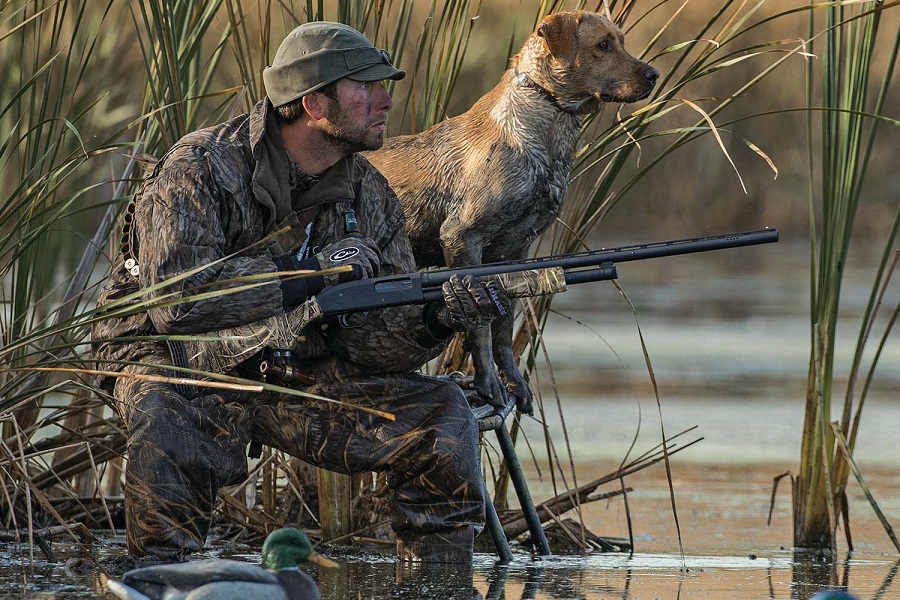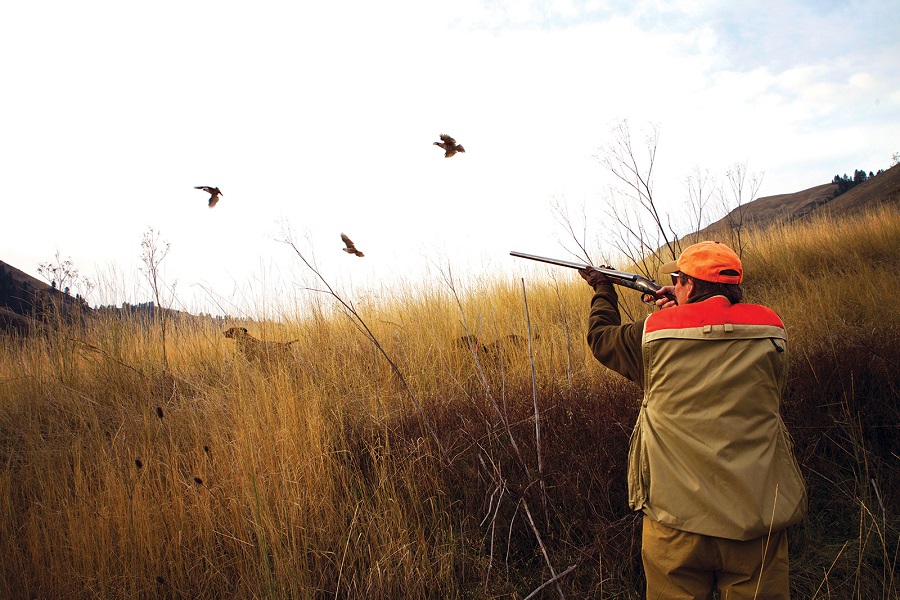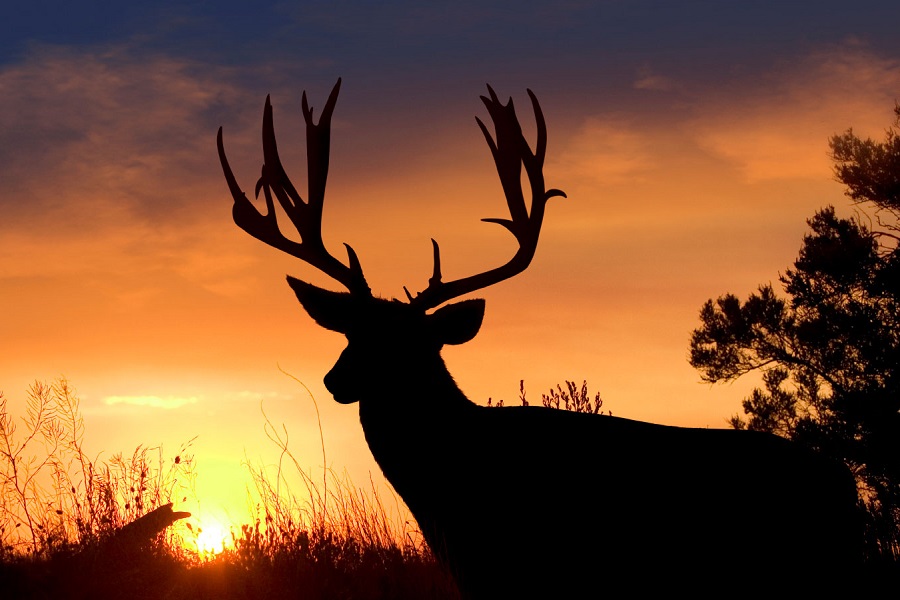We’re terribly sorry to say this to all you hunters out there, but it’s all too common to pack more than what you actually need. It’s difficult to detach from the lives we currently know and love, so we end up packing just a little bit more to feel a little bit safer.
It’s some way that we psych ourselves out of certain things and end up bringing along more than is necessary.
Well, that’s about to change. We’re not only going to show you what essentials you need, what you should forego bringing along in the first place, and how to save space with multitools, but we’re also going to tell you how to pack a hunting backpack.
The goal is optimisation: lighter weight, more durability, and less fatigue coming down from your shoulders.
Checklist Of Camping Essentials

Are you ready to get serious here? These are some essentials that any self-respecting hunter would have on them, with a few that may or may not fit your hunting style. The best way to hunt is with a lightweight, versatile backpack that doesn’t weigh down your entire body. Pack these to help keep things ultralight.
You can live without a tonne of stuff; this is what you need to get by and ensure that you’re fed, hydrated, and safe at all times. Just be sure that your gear coincides with the benefits of your hunting backpack.
Compass
Despite all the technological items that are at our disposal, it’s reliable to use a compass to find your way out of a situation that’s gone south. Whether you’re lost or just trying to track where you’re following your prey, a compass is basically the most essential piece of your gear.
If you run out of energy on your GPS or you just can’t find a signal (because that can and does happen in the deep woods), this is old and reliable. You’ll thank yourself for putting this cheap and ultimately lightweight essential in your backpack.
Flashlight
We can all assume that we know what time it is, how long it’ll take to get back to camp, and how fast we are. The thing is, that’s all ever-changing, so it’s just best to err on the side of caution and have a flashlight handy. If you get a tactical flashlight for self-defence, you’ll double up on the functionality of your tools.
A crowned bezel with a strobe light function and a high lumen output will turn your flashlight from a tool to a perfect means of evasion in a matter of seconds.
Scent Killer
Nobody wants to walk around aimlessly for two days and not bring anything home to put on the kitchen table. It’s embarrassing, and the missus isn’t going to like the idea of you spending two days out and not having anything to show for it.
Bringing scent killer is a great way to eliminate your natural odours that arise from sweating and walking around, as well as whatever scents you picked up along the way to the hunting ground.
Hunting Knife
You’ve managed to end your prey. Good on you, but now what? Maybe you have a sleigh with you to transport your kill, but you can’t just leave it as a rotting corpse for the entire walk back. Once you have enough ice to store the meat (which you should have on hand), you need to skin it and cut it up.
Store it, try to keep the pelt so you can sell it, and thank your dagger-sharp hunting knife for not letting you down.
Game Calls
What are you hunting? We can’t predict your prey of choice or the season you hunt in, but we do know that game calls can be used just about anywhere, anytime.
Whether you’re luring ducks in or creating a diversionary tactic, this could be the ultimate addition to your hunting backpack without taking up much room.
Flagging Tape
Let’s avoid accidents and problems at all costs, okay? Flagging tape should be super-bright neon to reflect sunlight and show your direct path. Whether someone needs to track you down in an emergency or you’re trying to mark the path that you last saw a deer travelling, it’s a handy little item that you shouldn’t be caught without.
Flagging tape can easily be stored in almost any compartment of your backpack, but try to keep it handy in an exterior mesh slot for easy access.
Water and a Water Filtration Device
You know you need water, but you might not realise just how much you need. A sedentary adult male needs a half gallon of water a day, but be honest with yourself and look inward: are you getting that much? If not, it’s time to bulk up, because you’re going to expend one to two gallons worth of water every single day that you’re hunting.
You can’t just carry around gallon jugs, so you need a water filter to get clean, potable water from streams and rivers to keep yourself hydrated.
Rations
You’re not going to be out for long, but you do need to keep your strength up. With all that heavy gear on you, it’s not going to take a lot to feel the effects of fatigue creeping in on you.
Having some dried rations on hand keeps your energy and blood sugar up while you’re waiting in tree stands or trekking through miles of forest to find the right spot.
Toilet Paper
I mean, I don’t think we need to explain this one that much. When duty calls, it calls.
Rope
It’s going to come in handy for a variety of purposes. For one, if you want to bring your game back on a sled, you need something to secure it with. Rope can also help you get up to your hanging tree stands, be used to climb rocks, and escape slopes that you could fall into.
It’s so versatile that you can’t not have a coil of at least 15 feet of rope on you. If you don’t want a full coil, bring along a paracord survival bracelet. Those can unravel to be about 15-20 ft long, so you’re never left without the convenience of rope.
Gloves for Cleaning Games
Latex, vinyl, whatever it is that you like to use Single-use gloves will be your go-to when you’re cleaning games on the scene. It doesn’t always last from the time of the kill to when you mount it on the car and get it home, so bring that cooler of ice with you and stash the meat until you can get it back to your fridge or freezer.
You’ll be using these to avoid bacterial infections and exposing yourself to deer bile as well.
GPS
You should know how to use a compass, and we told you to pack one, but there’s no point in using it for every venture if you do have GPS available. Hunting GPS systems start getting expensive, but you can find a GPS function in a Garmin watch that won’t die out on you.
Those things notoriously have extra-long battery lives, going two full weeks without a charge. That’s about the most powerful GPS you could ever ask for.
Face Paint
Face paint can help mask your scent, but it also helps you blend into the natural environment that’s surrounding you. You’re not exactly naturally camouflaged out there. Even if you have the hat, gloves, jacket, and everything in between, the windburned skin on your face is going to show up like a big, sore pink thumb.
It’s important to cover yourself completely.
Batteries
Depending on what type of GPS device you’re running, it could be a smart idea to bring along some spare batteries on the off chance that they bleed out.
Bring enough spares for two full replacements on all accompanying devices that run off of them.
First-Aid Kit
Always expect the unexpected. Just because we have a ridiculously low number of fatalities in this country from cuts and scrapes doesn’t mean you shouldn’t be careful. You’re in the middle of the woods;,act like everything will get infected and treat it as such.
Pack plenty of bandages, hydrogen peroxide, Neosporin, and gauze just in case.
Lighter Or Fire Starter
You never know when it’s going to come in handy. If you’re camping out over the weekend and hunting on the side, this is a necessity.
Don’t bother with two sticks and a bed of stones; use a fire starter (there are plenty that fit inside of paracord survival bracelets) or bring a lighter along for the ride to speed things up.
Pee Bottle
If you don’t trap your urine, it could undo all of your scent masking work. Urine is a potent smell to humans; what do you think a deer, which has a super sense of smell, is going to think? Marked territory. Do not go that way.
That’s what they’re going to think. Bottle it up so you don’t miss a drop, and keep it airtight so the scent doesn’t waft. It’s not the fun part of hunting, but it’s necessary.
How To Pack It Properly

We can’t define the right way to pack every single backpack. That would simply take forever. Instead, we can talk about the five zones of the backpack, zones that you can identify in any backpack based on their dimensions, strength, and what you can store there. Think of this as your ambiguous roadmap to backpacking in general.
- Bottom Zone: Your least necessary items should go here. That means anything you’re using to set up camp, anything heavy that can’t be crushed, and anything that isn’t going to be needed in an absolute jam. Don’t put knives, ammunition, or first-aid essentials here. This is the spot for the items that you can wait to withdraw until the time is right.
- Core Zone: Heavy items can go here; just don’t crush the bottom zone items. You’re basically given this spot as a free-range area, so do what you will and put the bulk of your oblong, obtuse, and downright obscene items here. Whatever looks like it’s a weird shape or won’t fit, you’ve just found it a home.
- Top Zone: Now we’re at the top; these are your lightweight items and anything that’s fragile. You should also place necessities here for quick access. You wouldn’t put a tent up top if you were camping out for the night, but you would put your hunting knife, fire starter, and first-aid kit here. Essentials that you need in a jiffy should be easily accessible through the top zone.
- Back Zone: It’s part of the three previous zones; it’s what goes up against your back. Ever throw something in your backpack that just hurt when it, y’know, stabbed you through the material? The back zone should have rigid, flat pieces of equipment placed here so it doesn’t hurt your back and so that it isn’t crushed in the bottom zone.
- Add-on Zone: It’s not the most impressive title, I’ll give you that, but it’s going to make the most sense. This is the afterthought spot, where you use those tool loops, tiny mesh bags, and pockets, and you make it work for your additional gear. Maybe you didn’t get a big enough backpack, and you’re putting these spots to good use. Just don’t put anything too heavy here.
Why Overpacking Is Very Bad
Fatigue. Damaging your joints. Going numb in places you didn’t know you could go numb Too much weight puts a lot of stress on your body. It elevates your blood pressure, inflames your joints, and damages the hell out of your lower back. There’s no reason that you should leave the forest with a backache.
Overpacking also puts you at a higher risk of being harmed by predatory animals. Well, rather than not being able to run away from them. You’re not going to instinctively drop your backpack, but you are going to turn tail and run away from whatever’s chasing you down. How are you going to do that with a heavy backpack?
It harms you,it can permanently damage ligaments; and it’s just unnecessary. You’re going to spend extra time packing and more time digging through all that stuff to find your essentials, and then you’ll get home and not want to unpack all of it. It’s a vicious cycle. Be confident in your abilities to conquer nature and its beasts, and you won’t feel the need to overpack for safety’s sake. You’re strong; you can get by with lightweight essentials and nothing more
Do You Need Spare Ammunition?
Yes, you should always bring a little bit of spare ammunition. Gunshots make a loud noise, and they’re not always going to clear the forest of animals. You might end up with predators, like wolves and coyotes, encircling your position ten to thirty minutes after you finalise a kill.
They’re professional stalkers; they understand how to stay hidden and silent, so they might be roused by the sounds or premonition of danger. Spare ammunition is going to be required to defend yourself. On top of that, you might rouse the nearby deer from their bedding areas, giving you a brief window of opportunity to bag another kill.
How Much Should My Hunting Backpack Weigh?
No more than one third of your body weight, taking muscle into account. Even if you’re a bulky, muscled guy or gal, you don’t want to exceed about 35% of your overall body weight. This begins to put unnecessary pressure on your joints, especially your lower lumbar, and the straps will dig into your shoulders. I don’t care how comfortable those shoulder straps are; they’ll be a nightmare if there’s too much weight in that backpack.
Of course, you should factor in your physical fitness level. If you’re fit, you can handle a bit more weight for a bit longer. That 35% on a five-mile hike is going to be brutal, but you can handle it. If you live a moderately sedentary lifestyle, you want to pack light, my friend. Around 15–25%, especially if there’s a lot of walking ahead of you.
Pack It Right And Design It For Life

Life still happens while you’re out on the hunting trail, so it’s important to pack the essentials and understand what you need versus what you don’t. We all need a bit of a reality check from time to time, and now, with this new packing method you’ve learned, you’ll notice a huge difference in the stress your shoulders feel and the aching (or lack thereof) in your lower lumbar.
Don’t worry, there’s no thanks necessary; just make sure you have the very best hunting backpack you can manage and bring home the venison to your family.
Resources:



